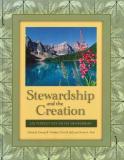All humankind are stewards over the earth and our environment. We should gratefully use what God has given, avoid wasting life and resources and use the bounty of the earth to care for the poor and the needy.
God created the earth to provide a place for the human family to learn, progress and improve. God first created the earth and all living things spiritually, and all living things have great worth in His eyes.
The earth and all things on it should be used responsibly to sustain the human family. However, all are stewards — not owners — over this earth and its bounty and will be accountable before God for what they do with His creations.
| Temple Square is always beautiful in the springtime. Gardeners work to prepare the ground for General Conference. © 2012 Intellectual Reserve, Inc. All rights reserved. | 1 / 2 |
Approaches to the environment must be prudent, realistic, balanced and consistent with the needs of the earth and of current and future generations, rather than pursuing the immediate vindication of personal desires or avowed rights. The earth and all life upon it are much more than items to be consumed or conserved. God intends His creations to be aesthetically pleasing to enliven the mind and spirit, and some portions are to be preserved. Making the earth ugly offends Him.
Elder Marcus B. Nash Address: "Righteous Dominion and Compassion for the Earth"
The state of the human soul and the environment are interconnected, with each affecting and influencing the other. The earth, all living things and the expanse of the universe all eloquently witness of God.
Selected Scriptures and Church Leader Statements on Environmental Stewardship and Conservation
Additional Articles and Resources on Environmental Stewardship and Conservation
